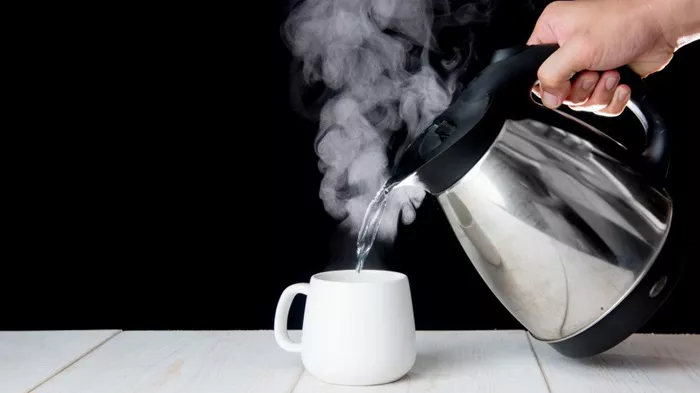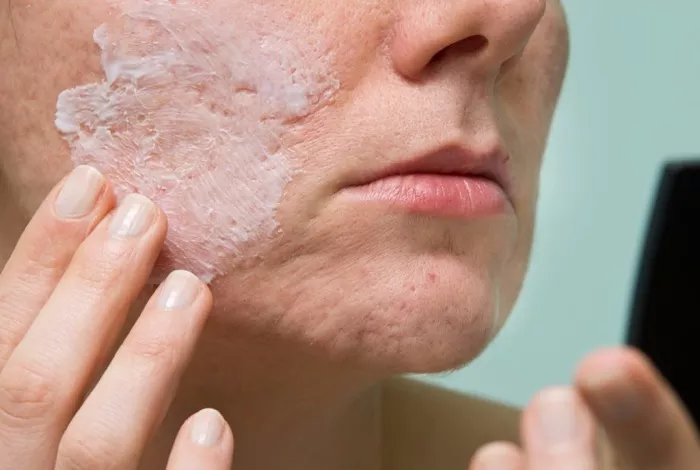Bipolar disorder is a complex and multifaceted mental health condition characterized by extreme mood swings, including depressive episodes and periods of mania or hypomania. Bipolar 2 disorder (BPD) specifically involves recurrent episodes of major depression and hypomania, but not full-blown mania. The triggers of bipolar 2 are numerous and can be biological, psychological, and environmental. Understanding what can trigger bipolar 2 is essential for managing the disorder and improving the quality of life for those affected. This article will explore the various factors that can trigger bipolar 2 disorder, from genetic predisposition and hormonal imbalances to stress, substance use, and sleep disturbances.
Bipolar 2 Disorder
Before delving into what triggers bipolar 2 disorder, it’s important to have a foundational understanding of the condition itself.
Bipolar 2 disorder is one of the subtypes of bipolar disorder, marked by depressive episodes lasting at least two weeks and hypomanic episodes, which are less severe than full-blown manic episodes. Unlike Bipolar 1, which includes manic episodes that can cause significant impairment, Bipolar 2 typically involves hypomania, a more moderate form of mood elevation that does not cause major disruptions in a person’s life. However, the depressive episodes in Bipolar 2 can be just as debilitating as those in Bipolar 1, sometimes leading to a significant decline in functioning.
The hallmark feature of Bipolar 2 is the alternating pattern of mood states. These episodes may not follow a predictable rhythm, and the severity and duration of each episode can vary from person to person. However, several triggers are commonly known to influence the onset or worsening of these mood states.
Genetics: A Strong Underlying Factor
A person’s genetic makeup plays a critical role in the likelihood of developing Bipolar 2 disorder. Studies show that there is a higher risk of developing bipolar disorder if there is a family history of the condition. People who have a first-degree relative, such as a parent or sibling, with bipolar disorder are more likely to experience the condition themselves. This genetic predisposition suggests that specific inherited genes can increase vulnerability to mood disorders like bipolar disorder.
While genetics play a significant role, it’s not solely about having a gene for bipolar disorder. The interaction between various genes, environmental factors, and life experiences determines the full onset of the disorder. This means that while a genetic vulnerability may exist, environmental triggers still play a substantial role in whether or not a person will develop Bipolar 2 disorder.
Hormonal Imbalances and Neurotransmitter Dysregulation
Hormonal changes and the dysregulation of brain chemicals (neurotransmitters) are often implicated in the development and triggering of bipolar episodes. During periods of mood swings, fluctuations in neurotransmitters such as serotonin, dopamine, and norepinephrine are common, and these chemicals play a crucial role in regulating mood and emotional responses. For example, in the case of depression, there may be a deficiency in serotonin and norepinephrine, while during hypomanic episodes, an overactivity of dopamine could be present.
Endocrine issues can also affect mood regulation. For example, thyroid problems, particularly hypothyroidism (low thyroid hormone levels), are commonly seen in individuals with bipolar disorder. Hypothyroidism can exacerbate symptoms of depression, triggering depressive episodes in those predisposed to bipolar 2. Conversely, hyperthyroidism (excessive thyroid hormone levels) can mimic or even trigger hypomanic symptoms. Because of this close relationship between hormones and mood regulation, any imbalances in hormones can act as triggers for both depressive and hypomanic episodes.
Stress: A Major Trigger for Bipolar 2 Episodes
Stress is one of the most well-documented environmental factors that can trigger episodes of bipolar disorder, including Bipolar 2. Acute stressors, such as the loss of a loved one, financial problems, or a relationship breakup, can destabilize a person’s mood and may act as a trigger for a depressive or hypomanic episode. Chronic stress, such as work-related pressures or ongoing health problems, can also contribute to mood dysregulation, making the individual more vulnerable to mood swings.
When an individual experiences stress, the body’s “fight or flight” response is activated, releasing stress hormones like cortisol. For people with bipolar 2, this heightened state of arousal can lead to mood shifts, either precipitating a depressive state or triggering hypomania. This is especially true if the stressor is prolonged, causing continuous strain on both the body and the mind.
Additionally, individuals with bipolar disorder tend to have a lower threshold for stress, meaning they may experience a heightened sensitivity to stressors compared to the general population. This sensitivity can make it harder to cope with everyday stress and more likely to lead to an episode.
A Powerful Trigger for Bipolar Episodes
Sleep plays a vital role in maintaining emotional and psychological well-being. For those with bipolar 2 disorder, sleep disturbances can be both a trigger and a symptom of mood swings. Research has shown that a lack of sleep or inconsistent sleep patterns can trigger the onset of hypomania, while excessive sleep or interrupted sleep can contribute to the onset of depressive episodes.
During hypomanic states, individuals with bipolar 2 often experience a reduced need for sleep, which may contribute to the elevation of mood. However, this lack of sleep can also disrupt the balance of brain chemicals, exacerbating mood instability. Conversely, during depressive states, individuals may have difficulty falling asleep, staying asleep, or waking up too early, which compounds feelings of fatigue and hopelessness.
Proper sleep hygiene and consistent sleep routines are critical for managing bipolar 2 disorder. Studies have demonstrated that stabilizing sleep patterns can help reduce the frequency of mood episodes and improve overall emotional well-being.
Substance Use and Abuse
Substance abuse is another well-established trigger for bipolar 2 disorder. Alcohol, recreational drugs, and even certain prescription medications can contribute to the onset of both depressive and hypomanic episodes. Substance use can alter the balance of neurotransmitters in the brain, which may interfere with mood regulation. Additionally, substances like alcohol and recreational drugs can act as depressants, which may worsen depressive episodes. On the other hand, stimulant drugs can potentially trigger hypomanic episodes by increasing dopamine levels in the brain.
Moreover, people with bipolar disorder may turn to substances as a way to self-medicate during periods of depression or hypomania, which further complicates the management of the disorder. It’s essential for those with bipolar 2 disorder to be mindful of the effects of substances on their mood and work closely with healthcare providers to manage their condition without resorting to alcohol or drug use.
The Impact of Weather and Light Exposure
Seasonal changes can influence mood disorders, including bipolar 2 disorder. Many individuals with bipolar disorder report that their mood states are affected by changes in the seasons, with depressive episodes more common in the winter months and hypomanic episodes occurring in the spring or summer. This pattern is sometimes referred to as “seasonal affective disorder” (SAD), and it is believed to be related to changes in daylight exposure.
The lack of natural sunlight in winter months can lead to reduced serotonin production in the brain, triggering depressive episodes in susceptible individuals. On the other hand, the increased sunlight and longer days in the spring and summer may lead to increased serotonin and dopamine, potentially triggering hypomania. For those with bipolar 2 disorder, seasonal changes can act as a trigger for mood swings, and understanding these patterns can help individuals better manage their symptoms.
Social and Environmental Factors
Social isolation, a lack of social support, or difficult interpersonal relationships can also trigger episodes of bipolar 2 disorder. A supportive and stable social network is essential for individuals with bipolar disorder to manage stress, gain emotional support, and maintain balance. Conversely, social conflicts or feelings of rejection can act as triggers, precipitating depressive episodes or hypomanic states.
Similarly, significant life events such as moving to a new city, changing jobs, or entering or leaving relationships can destabilize an individual’s emotional state and contribute to mood shifts. Understanding the influence of social dynamics and environmental changes is crucial in managing bipolar disorder and reducing the likelihood of triggering mood episodes.
Medications and Treatment Triggers
While medications are often essential for managing bipolar 2 disorder, certain drugs can trigger or exacerbate episodes if not properly managed. For example, antidepressants, when used alone without a mood stabilizer, can potentially induce a manic or hypomanic episode in individuals with bipolar 2 disorder. It’s important that individuals with bipolar 2 work closely with their healthcare provider to ensure that the right combination of medications is used.
On the flip side, suddenly discontinuing medications or not adhering to a prescribed regimen can also trigger mood shifts. Medication non-compliance is a common issue, and individuals with bipolar disorder need to work closely with their healthcare providers to develop a treatment plan that is both effective and sustainable.
Conclusion
Bipolar 2 disorder is a multifactorial condition influenced by genetic, biological, psychological, and environmental factors. Understanding what triggers bipolar 2 episodes is key to managing the disorder and improving the quality of life for individuals living with it. By recognizing potential triggers such as stress, sleep disturbances, substance use, hormonal imbalances, and environmental factors, individuals with bipolar 2 can take proactive steps to reduce the likelihood of mood episodes and manage their condition more effectively.
Early intervention, personalized treatment plans, and lifestyle modifications play critical roles in maintaining stability and improving mental health for those affected by bipolar 2 disorder. As more research continues to uncover the underlying causes and triggers of bipolar disorder, individuals living with this condition can look forward to better management strategies and improved outcomes.
Related Topics

































